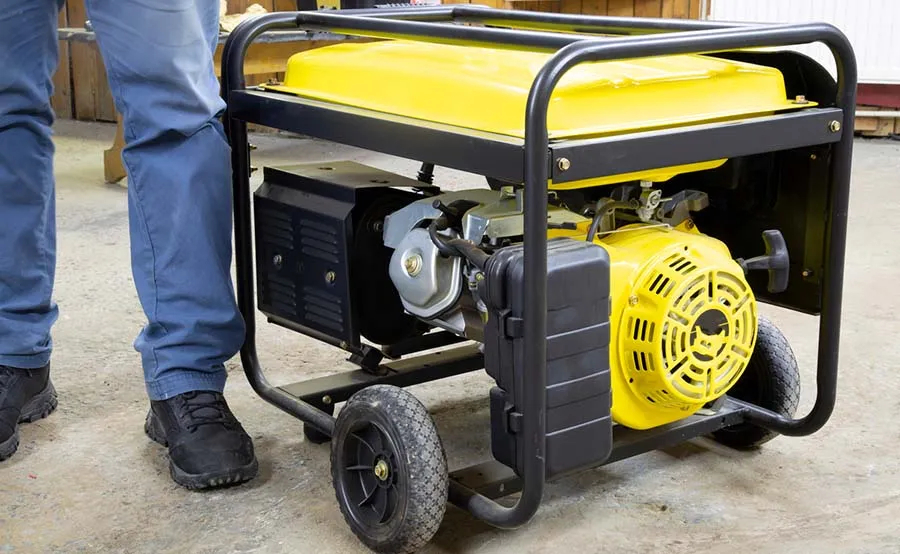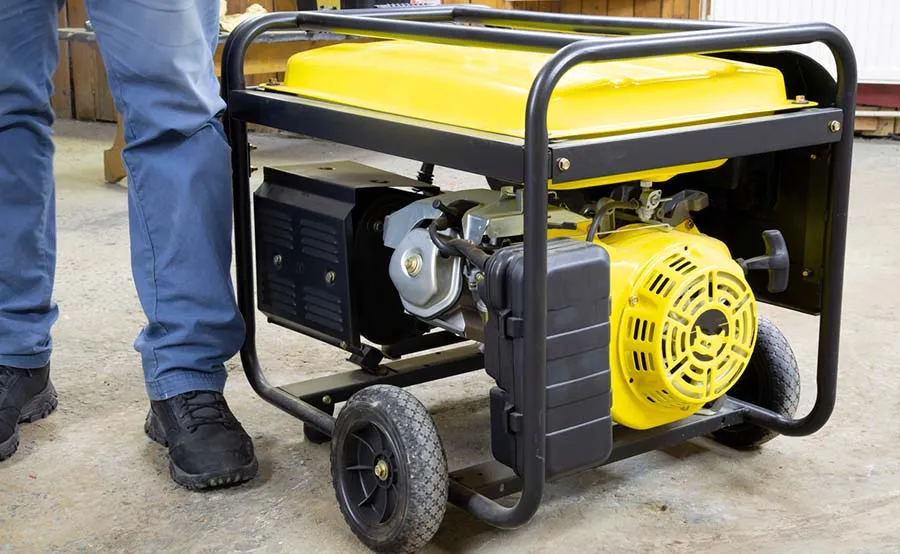The need for an alternative power source, propane vs gas generator, emerges when the grid fails to provide electricity. Since adverse weather strikes almost every region at some point throughout the year, having a generator would be beneficial. This may be to run the machinery of a factory or enjoy the convenience of electricity in your home during a blackout. However, choosing one among the two options, propane vs gas generator, could be challenging if you are unaware of the pros and cons of each generator.

Propane VS Gas Generator
There are many pros and cons of propane generators and gas generators that need to be considered before choosing one. The best option would depend on the individual power requirements. The major concerns to be considered also include the fuel cost, efficiency, safety, storage, accessibility, and degradability. As a responsible citizen, you should also emphasize the environmental impact through the combustion of each fuel. Let’s identify the key factors that will help you pick the best type of generator.
Fuel Type
The type of fuel used plays a major role in the selection of a generator. Propane generators have the advantage of having limitless shelf life and clean burning. Propane can be stored easily on site for refueling when required. It is even obtainable during power outages, and the generators running on propane emit lesser engine noise. You can even get propane through home delivery as less expensive units. However, the downside of using propane in the generators is that it has a more complicated fuel system. The pressurized cylinder of gas is flammable and could lead to safety issues if the precautionary measures are not followed. Propane engines may have a shorter lifespan when compared with diesel engines.
When considering gas generators, they can be considered the most environment-friendly fuel source. It is more emission compliant and also has a quieter engine noise level. When comparing generators that run on gas and propane, gas outperforms all other fuels in extremely cold freezing conditions. Hence, this can be considered a more convenient fuel. The disadvantages of gas generators include a lesser output than other fuels and a higher fuel consumption rate, which is almost three times that of diesel. Also, gas generators may have safety concerns if the lines are broken, especially in adverse weather.
Cost of Operation
The best way to compare the running cost of propane vs gasoline generators is to calculate the cost per kilowatt-hour of the user. Did you ever wonder how much propane a generator use? In dual-fuel generators, the ratio between the two fuels is roughly similar. Therefore, the cost of each fuel type is the factor that determines the cost to operate. The average price of propane in the US ranges from $12 to $18 for 20lbs. The average price of gas is from $2.13 to $3.29. Considering the average price of these two as $15 and $2.50 respectively, the running costs can be indicated as $0.83/KWH for propane and $0.47/KWH for gas.
Given a rated load of 50%, a gas tank would work for around 9 hours while a 20lbs propane tank at the same 50% rated load would run for around 10.5 hours. Considering the cost of fuel, gas will always cost less. Even if you consider the cheapest propane and most expensive gas price, gas will still work a bit cheaper.
Shelf Life
Generators are not used every day if the main power supply is from the grid. Thus, the generators need to be stored for certain periods. The conditions may differ for propane vs gas generators. Propane never degrades over time and is considered to be a favorable fuel for the shaft life of the generator. Gasoline is more likely to degrade after a year and is even more flammable. Propane should be stored in a certified tank or cylinder which needs recertification every 10 years. If you are using a gasoline generator, the shaft life can be degraded due to the carbon deposits left by gasoline. Hence, reassessment of the storage unit is needed at least once every 25 years.
Maintenance and Mechanics
Propane generators have a more complicated mechanism than gas generators. It could even lead to more operating errors in propane generators when compared with gasoline generators. This is the main disadvantage of using a propane generator. Gas spills are a more common scenario than propane leaks due to the high volatility. Hence filling the tank without spillage could be difficult. In propane, you can simply replace the gas bottle with a lesser chance of leakage.
Run Time
Since generators come with a built-in fuel tank, they can run for a few hours with a few gallons of fuel. It is necessary to feed more fuel for longer sessions of power generation. Therefore, you may have to refill the tank several times, depending on the period. However, you can find generators with different-sized propane tanks up to 420 pounds or more. Installing a suitable propane tank that can contain enough fuel for the session would help overcome this problem.
Environmental Concerns
Propane generators are quite environmentally friendly than gasoline generators despite their lower efficiency. This is because propane generators emit almost only half the amount of carbon monoxide emitted by a gasoline generator. Hence, propane s considered a clean-burning fuel that emits less toxic gases. This is a key factor when considering the pros and cons of propane generators.
The noise level is another equally important environmental concern of generators. Are propane generators quiet? Yes, propane generators emit lower noise levels than gas generators. The fume emitted by gas generators is also heavy, pungent, and smoky whereas the propane generators emit colorless and almost odorless fumes. This makes propane generators more favorable as a backup energy source for resident buildings.
Your Power Situation
Generators are used as both a backup for the grid power and used as the main power source for certain machinery. If your main power source is the grid and faces frequent blackouts, it would be ideal to use a propane generator. Although the plumbing may be complicated, you would have more benefits in terms of environmental concerns. If you are using the generator as the main power supply without any grid power, then all the daily power needs will have to be fulfilled through the generator. Since you would have to store large fuel quantities for longer periods, propane generators would once again be the best option.
But if your power concerns do not fall into any of the two above, you can consider going for a gas generator depending on the cost concerns and availability of fuel. Considering the safety of generators, protection from electromagnetic pulses is very important. Learn more about EMP proof generators.
Frequently Asked Questions

How long will a generator run on propane?
This may vary depending on the total weight of the load and the operation times. At full load, a 7kW generator will run for 66 hours on 100 gallons. Under the same conditions, a 12kW generator will run for 36 hours. Since most generators usually operate at a load capacity between 25% and 75%, the fuel supply will last even longer than this.
Is a propane generator better than gas?
There are many advantages of propane generators over gas, especially since propane is a clean-burning fuel that emits lesser toxic gases. Propane generators are also relatively quieter and require lesser maintenance. Hence, they are more reliable and expected to render a longer-lasting performance.
How far away does a propane tank need to be from a generator?
When placing a propane tank for your generator, the minimum distance to an opening of a building needs to be 3 feet. The propane tank should not be placed anywhere near a source of ignition to ensure maximum safety. Underground propane tanks are also considered safer than above-ground tanks, especially in cold climates.
Can you run a propane generator in the garage?
You should never run a generator indoors at your home, garage, or porch. This is because generators release toxic gases, including carbon monoxide, during fuel combustion in generating electricity. These toxic gases could even lead to death when inhaled in excess. Hence, a generator should always be operated outdoors at a safe distance of about 20 feet from the doors and windows of a building.
Conclusion
By now, you must have identified the best solution for your power requirement based on the discussion above. So let’s summarize the main ideas briefly. If you are looking for a backup generator only for a short period, a gas generator would be suitable, which is also the most widely available portable generator. But if you are looking for a long-term solution, choosing an environment-friendly propane generator will be the better option. If you are looking forward to learning more about generators, here’s how to run a generator in rain.
